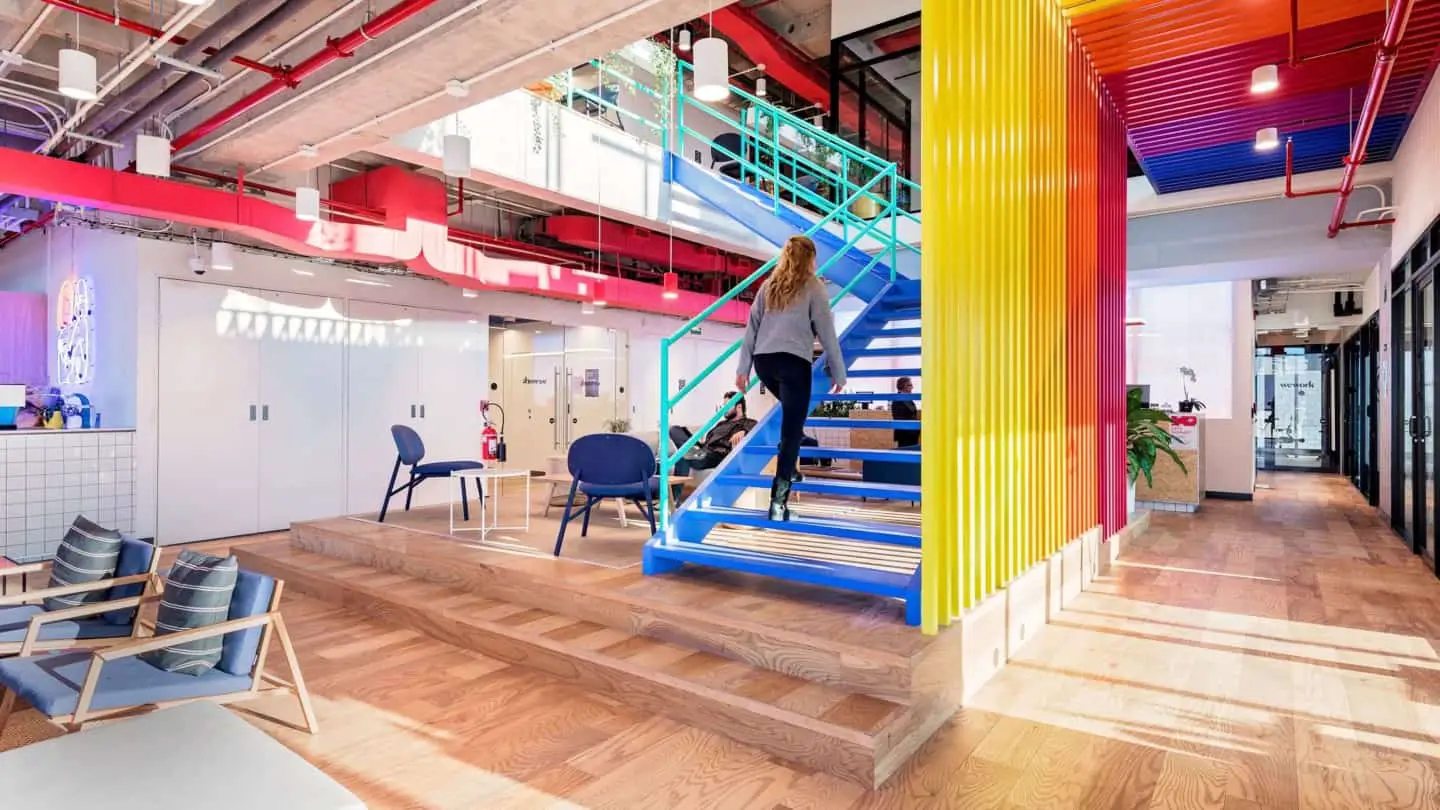Millennials being the largest workforce, have focused their efforts on gaining more and more workplace flexibility. Millennials are digital natives, and that completely change their approach to workplace flexibility and productivity.
Millennials and workplace flexibility. Millennials believe that workplace flexibility should be defined by the freedom of deciding where, when and how they can perform their tasks. And at the same time, the productivity can’t be measured by how much hours they have spent in the office, but how successful they performed their tasks.
Millennials are tech-savvy and they will always prefer remote employment possibilities. They grew up in an age with wireless devices, mobile phones, tablets, laptops, internet, and social media networks. They even treat their cell phones as part of themselves and keep them close at any time. This way they are always informed and connected with people they want to.
This means that they usually want to work from home or several remote locations, have flexible hours or less working hours so they can have a better work-life balance. They would even trade a higher salary for working fewer hours.
Flexible hours would help them work whenever they are most productive, instead of working the usual 9-5, and would make the whole workplace more productive. As the millennials become the major workforce, the flexible working hours and telecommuting are not a special privilege anymore, but they are becoming common workplace practice.
What are millennials?

Millennials are the people born between 1981-1996. While the generations before them are used to having structured and fixed schedule, 9-5 working hours, and strict dress code, millennials are focused on the end results, by having flexible work schedule and not so formal dress code.
This means that millennials are prioritizing workplace flexibility and are rejecting all jobs or companies that have a strict structure and culture. With the use of technology, telecommuting nowadays is a lot easier, and punching the clock at the same time for five days per week will become a thing from the past. If the employees have the possibility to take a few extra hours of sleep on Monday morning, they won’t mind working a few extra hours on Tuesday or Wednesday evening.
Millennials are especially productive and happy when there is a room for collaboration, team projects, as well as the unstructured flow of knowledge and information between the employees. Millennials have interactions and extensive networks of important connections beyond their company, which can be interpreted by older generations as not enough loyalty to one company.
Companies, especially digital ones such as Netflix, LinkedIn are offering unlimited vacation days, which results with much greater productivity and better results for the companies. Companies that still have the old policies regarding vacations days – working for at least 12 months or more to receive 2 weeks of vacation days, soon will be struggling with finding competent employees. (See our related article – What Benefits Impact a Job Offer? Is it all about the Money!! )
)
Since Millennials have grown using technology, they are able to conduct research on multiple topics. Which means that they don’t see their managers as experts in a particular field since they can acquire the needed information using multiple websites. Instead, they see their managers as mentors and coaches, from whose experience they can learn.
Past generations were sacrificing their lives for their work, which the millennials are not willing to. However, there is still the thought that people who are working remotely are slacking, or there is general confusion on who is allowed to have flexible hours. Companies need to set flexible workplace policies if they want to attract and retain employees from the millennial pool, and increase the overall company productivity.
Millennials are open to changing several jobs, before settling for a particular job. Since they are young adults, they are in the early stages of their careers. They still haven’t figured out which career path to take. Having multiple work environments, responsibilities, tasks at hand, help them become aware of where they want their career to be headed, discover their strengths, and areas of potential growth.
Why Provide Millennials Flexibility at Work?

Workplace flexibility enables higher employee engagement, increased job satisfaction, fewer sick days, improved mental health, increased productivity, as well as employees, are willing to stay with the same employer for a longer period.
-
Work-Life balance – Workplace flexibility help the employees to choose the best working schedule that balances their personal and work life. Millennials want to have the ability to choose when and where they would like to work, according to their needs by doing all the tasks successfully and still have time for fun activities with their friends and family. This way the companies have more loyal employees.
-
Increased productivity – In offices that have open floor plans, sometimes it’s difficult to get concentrated, with all distractions, such as chatting around, the noise of the coffee machines, impromptu meetings, etc. All of this can be avoided by having flexible hours or working from home. When employees need to be concentrated the most, they can work in quiet environments. Having workplace flexibility also allows employees to take less sick days.
-
Increased job satisfaction – Sometimes working in an office can be really draining with all those lights and not so many ergonomic chairs. Having the opportunity to work from a different place than the office can have a boost in the creativity and motivation to work, as well as increase the overall job satisfaction.
-
Flexible schedule – Having a flexible schedule is the most wanted option by millennials in the workplace. Millennials would feel empowered working for a company who is ready to move forward with all global trends and offer a flexible schedule, and they are more likely to be more productive and engaged.
To implement the best flexible schedule, companies could survey its employees in order to understand what flexible options to offer. The new program should be defined clearly, so the employees can know what exactly is expected from them and how they can set their flexible schedules. After implementing a program for a flexible schedule, the company should measure all aspects of flexible arrangement, such as engagements, productivity, absences, cost savings, etc. Some of the options can be:
Flexible schedule – This option is allowing the employees to choose their best working time (start and finish time), according to their personal needs, as long as those working hours meet the company’s needs;
Part-time schedule – This option is allowing the employees to work fewer hours per week;
Compressed working schedule – This option is allowing the employees to work more hours per day, and fewer days per week ( i.e. working 10 hours per day for 4 days per week);
Alternative schedule – Option where the employees are not working the usual 9-5 hours, but have some other working hours that meet their needs and responsibilities.
Flexible hours help the employees who are early birds to do their tasks early in the morning when their mind is sharpest. At the same time, help those people whose mind is sharpest later in the day. If this workplace flexibility is paired up with great technology, early birds can do most of their task before getting to the office, and the night owls can do their tasks the night before.
Telecommuting – Millennials are results-oriented, and with the use of different technologies, they are confident that can do their job successfully by working remotely from home or some other location. Having the option to work remotely for a few days per week makes the job more attractive to them, by having less stress while commuting and more quiet time to do their tasks. This option helps the companies in attracting and retaining employees from this generation.
Flexibility helps in acquiring new skills – Usually, when millennials are considering a new job offer, they are looking for an opportunity to advance in their career. All opportunities for advancing in the career, require having flexible time for going to seminars and workshops for learning new skills.
For millennials, the income is not the only thing about the work, they like to add new skills continuously in new and interesting ways. Having the time for finishing all targets at work, and taking initiatives for self-development, make them more ambitious and motivated to work. Everything is about personal improvement and enrichment, which can increase their productivity.
Workplace flexibility is connected with proper technology – Workplace flexibility and remote working are supported by technological advances, making all processes a lot easier and more efficient. Millennials are tech-savvy, but they are also very tech dependent. They tend to make the usual 9-5 a thing from the past. Using different tools for time tracking, communication, virtual meetings, conference calls, project management, and different cloud-based technologies, make sure that the teams are synced at all times regarding different aspects of the projects.
These cloud-based tools help the employees thrive and work remotely whenever works best for them. At the same time, their colleagues can see when a certain colleague is available to be contacted. This way, the company can track the number of hours worked and work updates. New communication technologies can help to create a positive company culture, which will be a great base for attracting potential talented employees.
Freelance work – With all technological advances, and more and more internet based jobs, millennials consider themselves freelancers since they have the chance to have on-demand jobs for companies across the world. On-demand jobs offer the ability to work flexible hours, without the need to honor a specific schedule. Then to work in times when the employees feel most productive. (We have written a related article – Freelancers and The Future of Work )
)
What Should Employers do to Attract Millennials to Their Company?

1. Create a great company culture
To attract and retain top-talented millennials in your company, make sure to create a company culture that is relaxed and flexible, that is encouraging open communication and sharing. It is not anymore about the office perks, such as ping pong tables, happy hours and lazy bags, it’s about having a positive environment that helps the employees thrive and collaborate.
Having open communication is highly valued by this young population, and they expect that their managers are honest and open with them, so they can learn their place in the company. Millennials are all for having a less formal environment, which can help them be themselves in that comfortable environment.
Millennials, starting from their early education process until college, are doing different tasks or projects as a team. Create a culture, where doing tasks as a team is highly recommended and can present great learning opportunities for the new employees. Having a peer, or a learning buddy for the first few weeks can be a great way for building a relationship with the team, asking questions and navigating through the tasks. Usually, new employees are more likely to ask their peers for something they are not sure about instead of asking their supervisor.
2. Help millennials learn and gain new skills
Millennials are eager to learn new things, gain new experience and skills. If there are no learning opportunities in the company they are in, they will start looking for a new job. Job training can be through mentoring, peer to peer, formal training, or virtual training. When thinking of ways to implement development and training programs targeted to millennials, make sure to take leverage of the new e-learning technologies. All e-learning opportunities can be on-demand, which gives the employees flexibility on when they want to take participation in.
3. Provide millennials with constant feedback
Millennials expect to receive constant feedback on how they are doing their work, instead of the usual bi-annual or annual performance feedback. This feedback helps them in fulfilling their tasks more successfully. At the same time, managers can address all arising problems and make sure that those problems are resolved in a timely manner. With receiving frequent feedback, millennials will be sure that the company is interested in them, and that they are not left alone, which can result in greater engagement.
4. Make sure to recognize millennials good work
Starting from school then to social media, millennials are used to be graded for everything they do, and often that grading is public. This presents them with an opportunity for direct measuring their success or failure. You can implement this kind of assessment measures in the company, where all achievements, starting from the great performance, exceptional care of the customers, to exceeding the sales goals, can be celebrated publicly. This kind of culture will be much appreciated by everyone, will set high standards, and everyone will have a reason to contribute without having the fear of being criticized. Of course, nobody wants to have their failures shown publicly, so keep that in mind.
5. Company participation in the community
Making big donations by giving part of the employee’s paycheck or company’s revenue to a charity is not the main thing for millennials. They are a generation that wants to be part of the action and make a direct impact on the wellbeing of the community. Make sure to be a socially responsible company, and not only the community will be thankful, but also the company will be more attractive to the millennials.
Related Questions
What is workplace flexibility? Workplace flexibility is a new alternative way of working, implemented in recent years. Companies with traditional workplace are dictating strict rules to its employees on how, where and when to do their jobs, where companies with workplace flexibility are allowing their employees to choose the time and place on how they want to do their job. (We have written a related article – What Are The Attributes of Workplace Flexibility? (Employee and Workplace) )
)
Workplace flexibility should not be considered as a perk that is offered to certain employees, but as a crucial part of the whole company structure since it has a great impact on the productivity levels. Companies with workplace flexibility are considered as more attractive for potential talented employees.
What are the types of workplace flexibility?
Job Sharing – Job sharing is a way of work, where two employees are sharing the same role. For the company, this arrangement means that one role is getting two people with different skill sets committed to successfully do their job. This way the company won’t lose their brightest workers in case they don’t want to work full time because of different personal reasons, such as having small children or taking care of their parents.
Remote work – Remote work is a job arrangement where the employee has the opportunity to work from home, or some other remote location for several days per week. This type of arrangement reduces the costs for both, the company (office expenses) and for the employees (commuting expenses).
Flexible scheduling – Flexible Scheduling is when the employees are allowed to work different hours than the traditional 9-5 working hours. A flexible schedule may include compressed working hours, or flexible starting and finishing times. This type of workplace flexibility allows the employees to have a better work-life balance.
What are the benefits of workplace flexibility for employers?
-
– Have access to a global talent pool – with the use of new communication tools, new employees can be recruit from different parts of the country, and even from different countries around the world;
-
– Cost savings regarding office rents, supplies, and utilities;
-
– Company has a better reputation when hiring a new employee.

